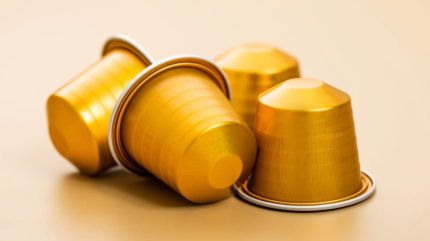
Waste management company FCC Environment and coffee pod recycling scheme Podback are partnering to increase access to pod recycling services in England and Wales.
The initiative follows a successful pilot programme that collected 14 tonnes of used pods in just six months.
The rollout will see designated recycling bins for aluminium and plastic pods at household waste recycling centres (HWRCs) across the two countries.
Wigan, Luton, and Nuneaton in England are the first locations to benefit from the scheme, with more to be announced soon.
“Our pilots over the last year with FCC have proved successful and have received positive feedback from residents using the service. We hope offering people another option to recycle their used pods will help to make recycling even more convenient and accessible and increase rates of recycling overall in these new locations,” said Rick Hindley, executive director of Podback.
“We have an active pipeline for local authority [authorities] wanting to include Podback at their recycling centres and look forward to announcing more soon.”
Podback will provide recycling bins, signage, and manage collection and reprocessing logistics for the scheme within the UK.
Residents can separate their aluminium and plastic coffee pods at home and deposit them loose at the designated bins during regular HWRC visits.
No special Podback bags are required.
The Podback scheme ensures that used pods within the UK are recycled domestically.
Separated aluminium is transformed into beverage cans and car components while plastic finds new life in packaging crates, building products, and other applications.
Meanwhile, excess coffee grounds are treated through anaerobic digestion, generating renewable biogas and soil improver.
Additionally, Podback will share data on tonnage and pod destination with local authority WasteDataFlow, enhancing recycling data transparency.
The collaboration between FCC Environment and Podback represents a significant step towards making coffee pod recycling more accessible and sustainable across England and Wales.



